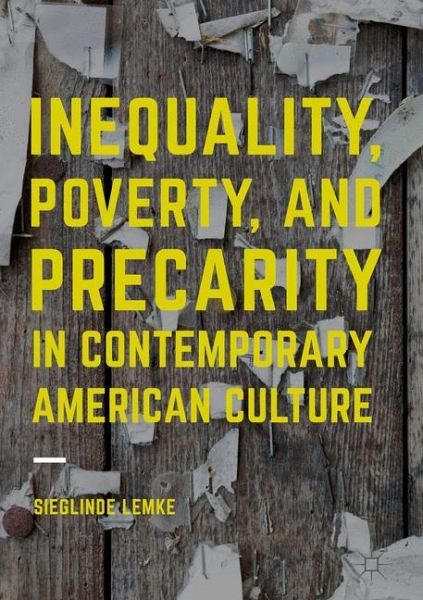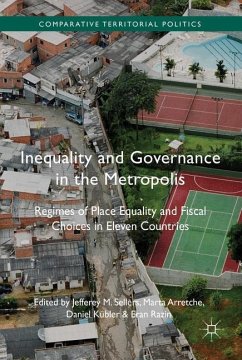
Inequality, Poverty and Precarity in Contemporary American Culture

PAYBACK Punkte
34 °P sammeln!
This book analyzes the discourse generated by pundits, politicians, and artists to examine how poverty and the income gap is framed through specific modes of representation. Set against the dichotomy of the structural narrative of poverty and the opportunity narrative, Lemke's modified concept of precarity reveals new insights into the American situation as well as into the textuality of contemporary demands for equity. Her acute study of a vast range of artistic and journalistic texts brings attention to a mode of representation that is itself precarious, both in the modern and etymological s...
This book analyzes the discourse generated by pundits, politicians, and artists to examine how poverty and the income gap is framed through specific modes of representation. Set against the dichotomy of the structural narrative of poverty and the opportunity narrative, Lemke's modified concept of precarity reveals new insights into the American situation as well as into the textuality of contemporary demands for equity. Her acute study of a vast range of artistic and journalistic texts brings attention to a mode of representation that is itself precarious, both in the modern and etymological sense, denoting both insecurity and entreaty. With the keen eye of a cultural studies scholar her innovative book makes a necessary contribution to academic and popular critiques of the social effects of neoliberal capitalism.














